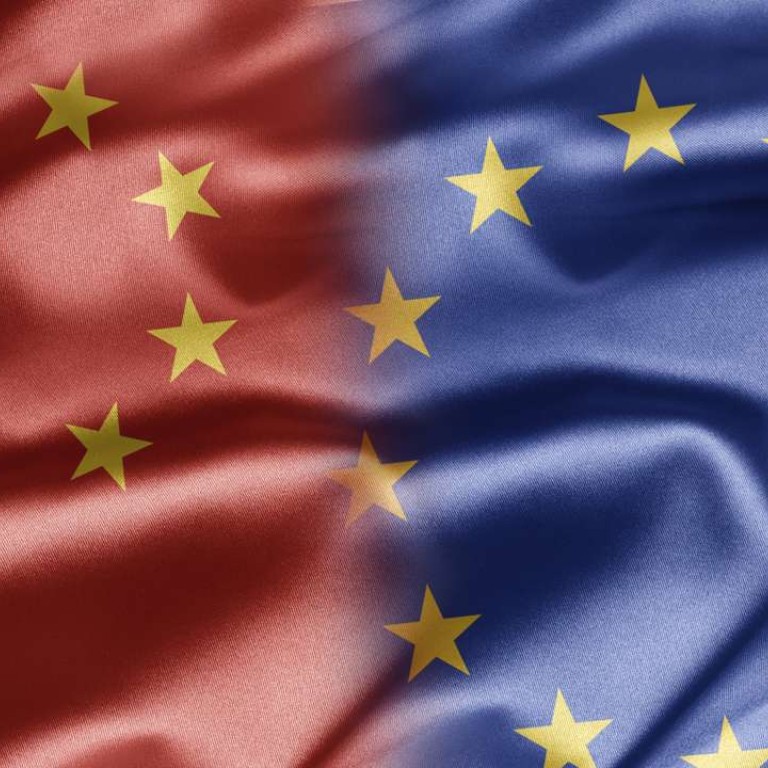
European disunion will have implications for China
The union is ‘at least in part, in an existential crisis’ said EU Commission President Jean-Claude Juncker last week
All is not well within the European Union, as even its leaders concede, but disunion might not just affect EU member states but spill over to affect others, notably China.
Policymakers in Beijing cannot be complacent about developments in Europe as there is a real risk that the EU might become more introspective.
The union is “at least in part, in an existential crisis” said EU Commission President Jean-Claude Juncker on 14 September, while Friday saw Germany’s Chancellor Angela Merkel, attending an EU Summit in Bratislava, describe the bloc as “in a critical situation”.
The Summit, to which the United Kingdom was not invited following June’s British vote to leave the European Union (Brexit), culminated in the setting out of an action plan for the EU, eliciting a comment from Merkel that “the spirit of Bratislava was a spirit of cooperation”.
Yet, Italy’s Prime Minister Matteo Renzi was decidedly unimpressed.

No more than “a nice cruise on the Danube” was how, on Sunday, Renzi described the EU Summit.
“I don’t know what Merkel is referring to when she talks about the ‘spirit of Bratislava’,” he said. “If things go on like this, instead of the spirit of Bratislava we’ll be talking about the ghost of Europe.”
Elsewhere, intra-EU harmony has also been in short supply between Hungary and Luxembourg.
“Those who, like Hungary, erect fences against war refugees, violate the freedom of the press and the independence of the judiciary should be excluded temporarily, or if necessary forever, from the EU,” said Luxembourg’s Foreign Minister Jean Asselborn on 14 September, prompting Hungary’s Foreign Minister Peter Szijjarto to call the Luxembourger “condescending, uppity, and frustrated.”
In the meantime, the Basel-based Bank for International Settlements (BIS) often referred to as the central banks’ central bank, noted in its Quarterly Review, published Sunday, that investors continue to rate euro area banks, at least as judged by the price-to-book ratio, more critically than their UK and US peers.
Of course, aside from perhaps colouring the attitude of investors in Asia towards the European Union, on the face of it, disunion in Europe shouldn’t directly affect trade relations between the EU and third parties, but in reality it might.
The future of EU-US negotiations on a Transatlantic Trade and Investment Partnership (TTIP) already remains unclear. A letter to Cecilia Malmström, EU trade commissioner, dated 14 September and signed by 12 EU Trade Ministers, recommended that remaining obstacles to TTIP be ironed out, but France and Germany were notably missing from the signatory list.
As for EU-China relations, there is the thorny issue of China’s status within the World Trade Organisation (WTO) that still needs to be resolved.
As for EU-China relations, there is the thorny issue of China’s status within the World Trade Organisation that still needs to be resolved
Beijing considers that, as an integral part of the agreement under which China joined the WTO in December 2001, it has a right to be categorised as a market economy at the end of 2016.
As a non-market economy China is currently vulnerable to higher anti-dumping duties than might otherwise apply.
Whether or not market economy status is accorded China by the EU, and whether or not that also means lower anti-dumping duties can then be applied, remain undecided but Brexit, given Britain is one of the EU’s biggest exponents of free trade, may result in the European Union being less laisser-faire.
Indeed, Emmanuel Macron, who recently resigned as France’s economy minister to prepare to contest the French Presidency, made it quite plain last week that he would expect the European Union to take a different tack with, for example, China once Britain has departed the EU scene.
“In the US when you have a dumping attack coming from China or wherever, in two months’ time you put a 500 per cent tariff on the table,” Macron said.
“In the EU it takes eight months to put on a 20 per cent tariff. Why? Because… the UK was one of the biggest opponents of this reform because of this love of trade,” he added.
The message is clear. For Macron, Britain’s commitment to free trade tempers the capacity of the European Union to impose punitive tariffs in a timely fashion where it deems them justified.
By definition therefore, Britain’s departure from the EU stage would leave others freer to impose such duties on third parties.
The European Union’s problems cannot just be written off as a local affair. The EU imbroglio and the consequences of Brexit could well result in wider trade tensions that embroil China.

